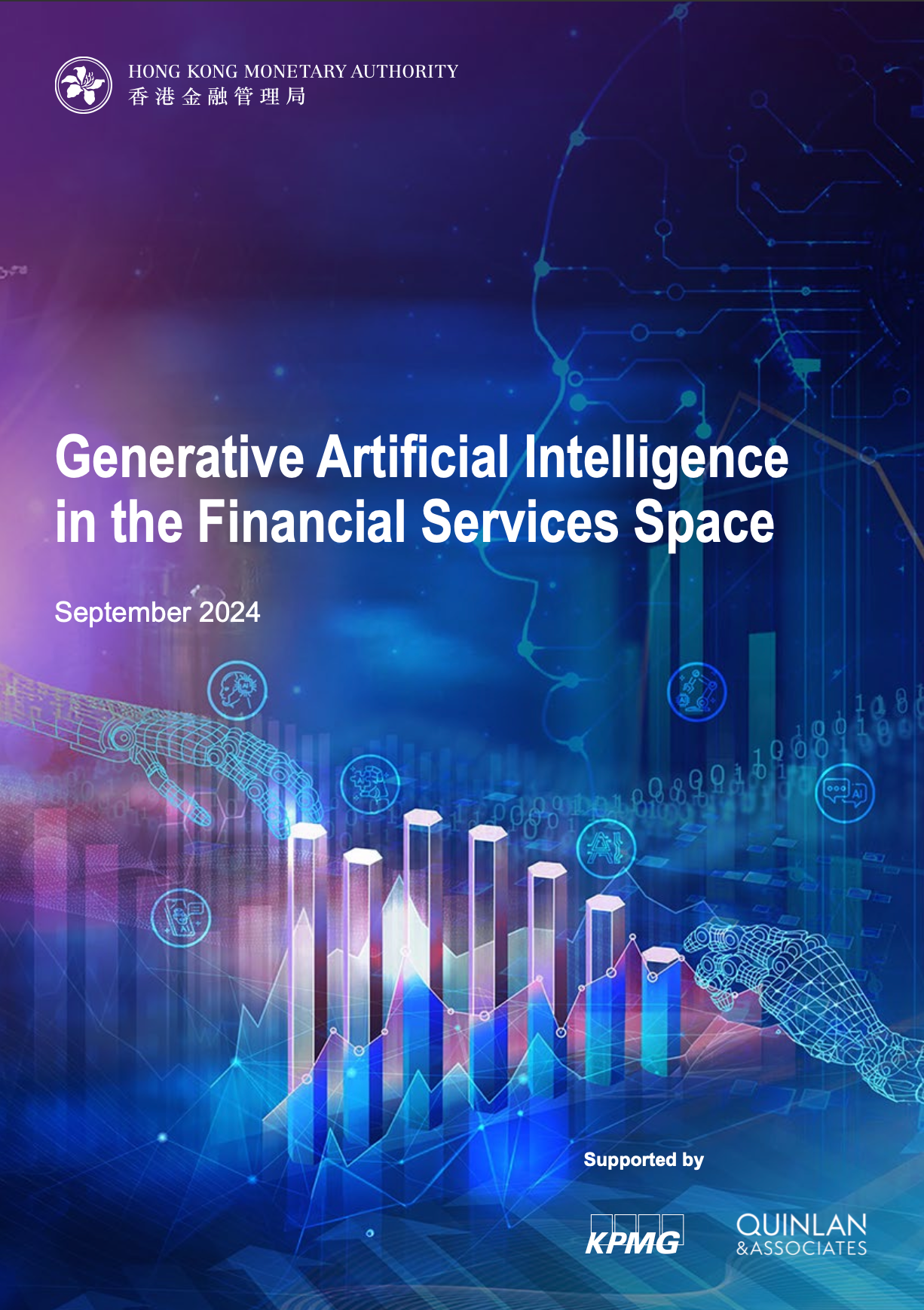
AI Scams Are Reshaping Financial Fraud—Are You Prepared?
Fraud in the AI Era: A Compliance Nightmare Unfolding
Financial fraud has always evolved with technology, but artificial intelligence has accelerated its sophistication at an alarming pace. What was once limited to phishing emails and Ponzi schemes has now morphed into deepfake-driven identity theft, AI-generated misinformation, and synthetic voices that can impersonate anyone with eerie precision.
The British Columbia Securities Commission (BCSC) recently launched a bold campaign titled “We’re Not All F**ked”—a strikingly unconventional yet necessary wake-up call about AI-powered scams. This campaign isn’t just a gimmick; it’s a critical warning to financial institutions, regulators, and investors worldwide. AI-driven fraud has already resulted in hundreds of millions in losses, and if the financial industry doesn’t adapt its compliance measures fast, these numbers will skyrocket.
At Studio AM, we specialize in Compliance-as-a-Service (CaaS) for fintech, regtech, and financial institutions.Through our expertise in regulatory compliance, fraud detection, and AI governance, we help businesses combat emerging threats before they spiral out of control. Today, we dissect the four dominant AI-driven scams shaking the financial world and outline what compliance strategies must be implemented immediately to prevent catastrophe.

1. Deepfake Impersonation Fraud: The CFO That Never Was
The most dangerous AI-driven scam today involves deepfake impersonation, where fraudsters use AI-generated videos and voice clones to mimic executives, financial advisors, or corporate leadership. These scams are not theoretical—they are already costing businesses millions.
In early 2024, British engineering giant Arup fell victim to a $25 million deepfake scam when an employee was tricked into transferring funds after attending a video conference featuring AI-generated versions of the company’s CFO and colleagues. The technology was so convincing that the employee had no reason to suspect fraud.
This incident reveals a terrifying truth: traditional identity verification methods—video calls, voice authentication, and even facial recognition—are no longer reliable. AI can now fabricate entire personalities in real time, making it impossible to rely on visual or auditory confirmation alone.
What Must Change in Compliance?
Financial institutions must immediately rethink their transaction verification methods. Multi-factor authentication (MFA) is no longer sufficient when AI can clone voices, faces, and gestures with near-perfect accuracy. Instead, compliance teams must integrate:
- Real-time biometric liveness detection—analyzing micro facial movements, pupil dilation, and voice cadence to distinguish between a real person and an AI-generated clone.
- Independent, out-of-band transaction confirmations—fund transfers above a certain threshold should require a second, verified approval through a separate secure channel.
- AI-driven anomaly detection—machine learning models must analyze behavioral biometrics, including typing speed, device fingerprinting, and interaction patterns, to flag suspicious activity.
The financial industry can no longer afford to trust what it sees or hears—it must trust what AI-resistant security measures confirm.

2. AI Voice Cloning: The End of Trust in Verbal Authorization
AI-powered voice cloning has emerged as a weapon of deception, allowing fraudsters to impersonate CEOs, financial advisors, and even family members. With just a few seconds of recorded audio, AI can generate a synthetic voice that is indistinguishable from the real person.
This technology has already been exploited in kidnapping scams, where criminals call victims using AI-cloned voices of their loved ones, demanding ransom payments. But in the financial sector, the implications are even more severe.
Case Study: The $35 Million AI Voice Scam
In 2023, a bank manager in Hong Kong received a call from what sounded exactly like the director of a major corporate client. The AI-cloned voice instructed the manager to approve a $35 million transfer. The fraud was only discovered after the money had already been wired to multiple international accounts.
How Financial Institutions Must Adapt
The reliance on verbal authorization for financial transactions must end. Instead, compliance teams must:
- Implement AI-driven speech analysis tools that detect frequency modulation anomalies unique to synthetic voices.
- Require pre-agreed security phrases or encrypted voice authentication keys for high-risk transactions.
- Enforce strict multi-step verification for voice-based approvals, including secondary authentication mechanisms that AI can’t replicate (such as behavioral biometrics).
Without these measures, voice-controlled banking and trading will remain an open target for AI fraudsters.

3. AI-Powered Romance & Investment Scams: The $46 Million Crypto Conspiracy
Fraudsters have always exploited human emotion, but AI has automated deception at an unprecedented scale. Using AI-generated images and deepfake video calls, scammers are building trust with victims before luring them into fraudulent investment schemes.
Case Study: Hong Kong’s $46 Million AI Romance Scam
In 2024, Hong Kong police arrested 27 individuals connected to an AI-driven romance scam that defrauded victims of $46 million in fake cryptocurrency investments. Scammers used:
- AI-generated profile pictures and deepfake video calls to impersonate romantic partners.
- AI-powered chatbots to maintain long-term conversations with victims, making the deception appear authentic.
- Fake investment platforms to simulate profits, convincing victims to continue investing.
The Compliance Challenge: AI-Generated Identities
The emergence of AI-generated identities means traditional KYC (Know Your Customer) frameworks must be overhauled. Financial institutions must:
- Adopt AI-powered identity verification tools capable of detecting synthetic faces and AI-generated documents.
- Implement behavioral analysis for investment patterns—unusual, high-frequency trades should trigger fraud investigations.
- Strengthen regulatory oversight on digital investment platforms to prevent fraudulent cryptocurrency schemes from operating unchecked.
Without these changes, AI-driven investment fraud will become the next billion-dollar financial crime wave.

4. AI-Generated Market Manipulation: The Deepfake That Could Crash the Stock Market
AI isn’t just being used for identity theft and investment fraud—it’s also being weaponized to manipulate financial markets.
Case Study: The Joe Biden Deepfake Robocall
In January 2024, an AI-generated robocall impersonating U.S. President Joe Biden urged voters not to participate in the New Hampshire Primary. The call was shockingly realistic, showing how deepfakes can now be deployed for mass misinformation campaigns.
Imagine the Financial Consequences
What happens when a deepfake video of a Fortune 500 CEO falsely announcing bankruptcy goes viral? In today’s high-frequency trading environment, even a 30-minute window of misinformation could trigger billions in market losses before corrections can be made.
How Compliance Must Evolve to Counter AI-Fueled Market Manipulation
- AI-driven sentiment analysis tools must be deployed to detect synthetic media in financial news.
- Corporate press releases should be blockchain-verified to prevent deepfake-driven misinformation.
- Regulators must introduce AI-specific compliance measures to prevent market manipulation through synthetic media.
Without these safeguards, AI-driven misinformation poses a systemic risk to global financial stability.
AI Fraud Is Not the Future—It’s Already Here
The financial industry cannot afford to react slowly to AI-driven fraud. These scams are already costing hundreds of millions, and the damage will only escalate unless compliance standards evolve at the same pace as the threats.
At Studio AM, we specialize in AI-resistant compliance solutions, fraud detection, and regulatory frameworksdesigned for the new era of financial crime.
🔹 Is your institution prepared for the AI fraud crisis? Contact Studio AM today and future-proof your compliance strategy.




